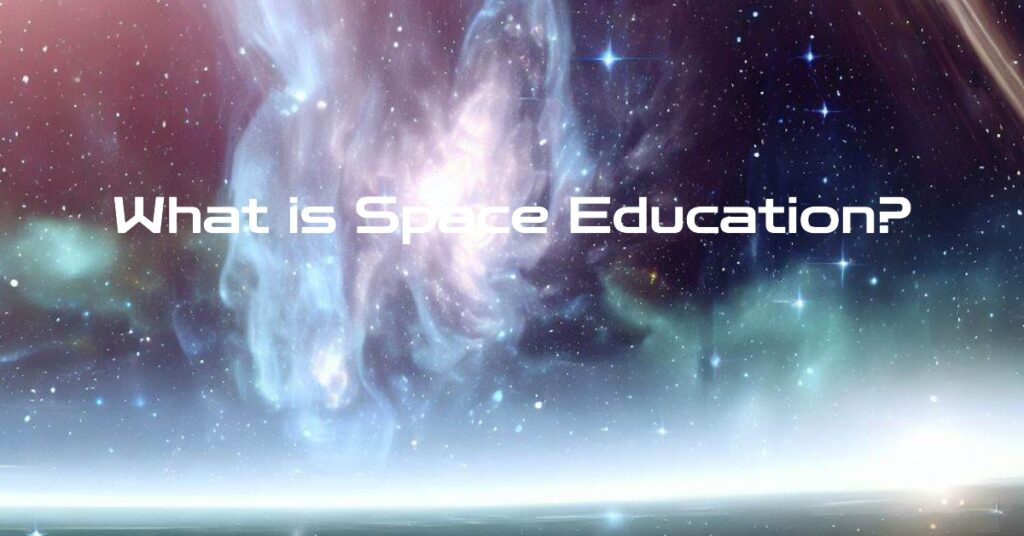Space Education: Unlocking the Cosmos for Future Generations
Space, the final frontier, has always ignited curiosity and wonder in the hearts of humanity. Exploring the vastness of the cosmos has led to remarkable scientific discoveries and technological advancements. But beyond exploration and scientific research, there is another critical aspect that holds immense importance—space education. In this article, we will delve into the significance of space education and why it plays a crucial role in shaping the future of our society.
The Essence of Space Education
Space education refers to the process of imparting knowledge and fostering understanding about space science, astronomy, and the exploration of the universe. It aims to engage learners of all ages, from young children to adults, and inspire them to develop an appreciation for space-related subjects. By providing a comprehensive understanding of space, its phenomena, and its exploration, space education cultivates curiosity, critical thinking, and a passion for scientific exploration.
Why Space Education Matters
Igniting Curiosity and Wonder

One of the primary reasons space education is vital is its ability to ignite curiosity and wonder in learners. Space, with its vastness and mystery, captivates the imagination and prompts questions about our existence and the nature of the universe. By introducing learners to space-related topics, we nurture their natural curiosity and inspire them to explore the unknown, fostering a lifelong love for learning.
Promoting STEM Education
Space education is a powerful tool for promoting science, technology, engineering, and mathematics (STEM) education. It incorporates various disciplines, including physics, astronomy, engineering, and computer science. By integrating these subjects in the context of space exploration, learners gain a holistic understanding of STEM concepts and their real-world applications. Space education motivates students to pursue STEM careers and contributes to building a skilled workforce for future technological advancements.
Encouraging Critical Thinking and Problem-Solving
The study of space requires critical thinking and problem-solving skills. Space education challenges learners to analyze complex data, evaluate evidence, and make informed decisions. From understanding celestial phenomena to designing space missions, learners develop critical thinking abilities that extend beyond space-related topics. These skills are transferable and can be applied to various aspects of life, preparing learners for future challenges and opportunities.
Fostering Global Collaboration
Space exploration is a collaborative endeavor that brings together scientists, engineers, and researchers from different countries and cultures. Space education promotes global collaboration and cultural exchange by highlighting the shared goal of understanding and exploring the universe. By fostering international partnerships, space education cultivates a sense of global citizenship and encourages collaboration in addressing global challenges beyond the boundaries of Earth.
Inspiring Technological Advancements
Space education has been the driving force behind numerous technological advancements. From satellite communications to GPS navigation systems, many innovations originally developed for space exploration have found applications in everyday life. By exposing learners to space-related technologies and their impact, space education sparks innovation and inspires the development of new technologies that benefit various industries and enhance our quality of life.
Preserving Earth and Expanding Human Horizons

Understanding the cosmos can deepen our appreciation for our home planet and motivate us to protect it. Space education emphasizes the interconnectedness of Earth and the universe, highlighting the fragility and uniqueness of our planet. By instilling a sense of responsibility and stewardship, space education encourages sustainable practices and environmental conservation. Additionally, space education expands human horizons by fostering dreams of exploration beyond Earth, potentially leading to future space missions and colonization.
The Future of Space Education
As we venture further into the 21st century, the importance of space education is expected to grow even more significant. Advancements in space technology, such as the rise of private space companies and the potential for space tourism, will capture the public’s imagination and create new opportunities for education. Virtual reality experiences, immersive simulations and interactive learning platforms will revolutionize space education, allowing learners to embark on virtual space journeys and engage in hands-on experiences. Furthermore, the integration of space education into school curricula and educational institutions will provide equal access to space-related knowledge and inspire students from diverse backgrounds to pursue careers in space exploration and related fields.
To ensure the effectiveness of space education, collaboration between educational institutions, space agencies, and private industry is crucial. Partnerships can facilitate the exchange of resources, expertise, and educational programs, enabling the development of comprehensive and engaging space education initiatives. Additionally, outreach programs and public events, such as stargazing nights, space camps, and guest lectures, can create immersive experiences and spark interest in space among learners of all ages.
Space education also holds promise for addressing global challenges. By integrating space-related concepts into environmental studies, climate change research, and sustainable development, learners can understand the interconnectedness of Earth’s systems and explore innovative solutions to pressing issues. Space-based technologies, such as satellite monitoring and remote sensing, offer valuable tools for monitoring and managing natural resources, mitigating natural disasters, and supporting global initiatives.
Space education is not just about acquiring knowledge of the cosmos; it is a catalyst for curiosity, critical thinking, and scientific exploration. By igniting curiosity, promoting STEM education, fostering global collaboration, and inspiring technological advancements, space education empowers learners to become active contributors to a future driven by innovation and discovery.
As we embark on a new era of space exploration and scientific endeavors, investing in space education becomes essential. By unlocking the wonders of the cosmos and nurturing a passion for space-related subjects, we prepare future generations to embrace the challenges and opportunities that lie beyond our planet. Space education serves as a guiding light, inspiring learners to reach for the stars and expand the boundaries of human knowledge.
References:
- National Aeronautics and Space Administration (NASA). (n.d.). Retrieved from https://www.nasa.gov/
- European Space Agency (ESA). (n.d.). Retrieved from https://www.esa.int/
- Smithsonian National Air and Space Museum. (n.d.). Retrieved from https://airandspace.si.edu/
- United Nations Office for Outer Space Affairs (UNOOSA). (n.d.). Retrieved from http://www.unoosa.org/

C M, a seasoned editor, journalist, and consultant, is deeply fascinated by the convergence of technology, space, and the future of humanity.
With a particular interest in transhumanity, futurology, and the philosophical and ethical dimensions of these domains, C M serves as the lead contributor to SpaceSpotlight and TranscendSphere.
When not penning insightful articles on these rapidly evolving fields, C M indulges in their love for podcasts and books, proudly embracing their status as a ‘Happy Nerd Extraordinaire!’



